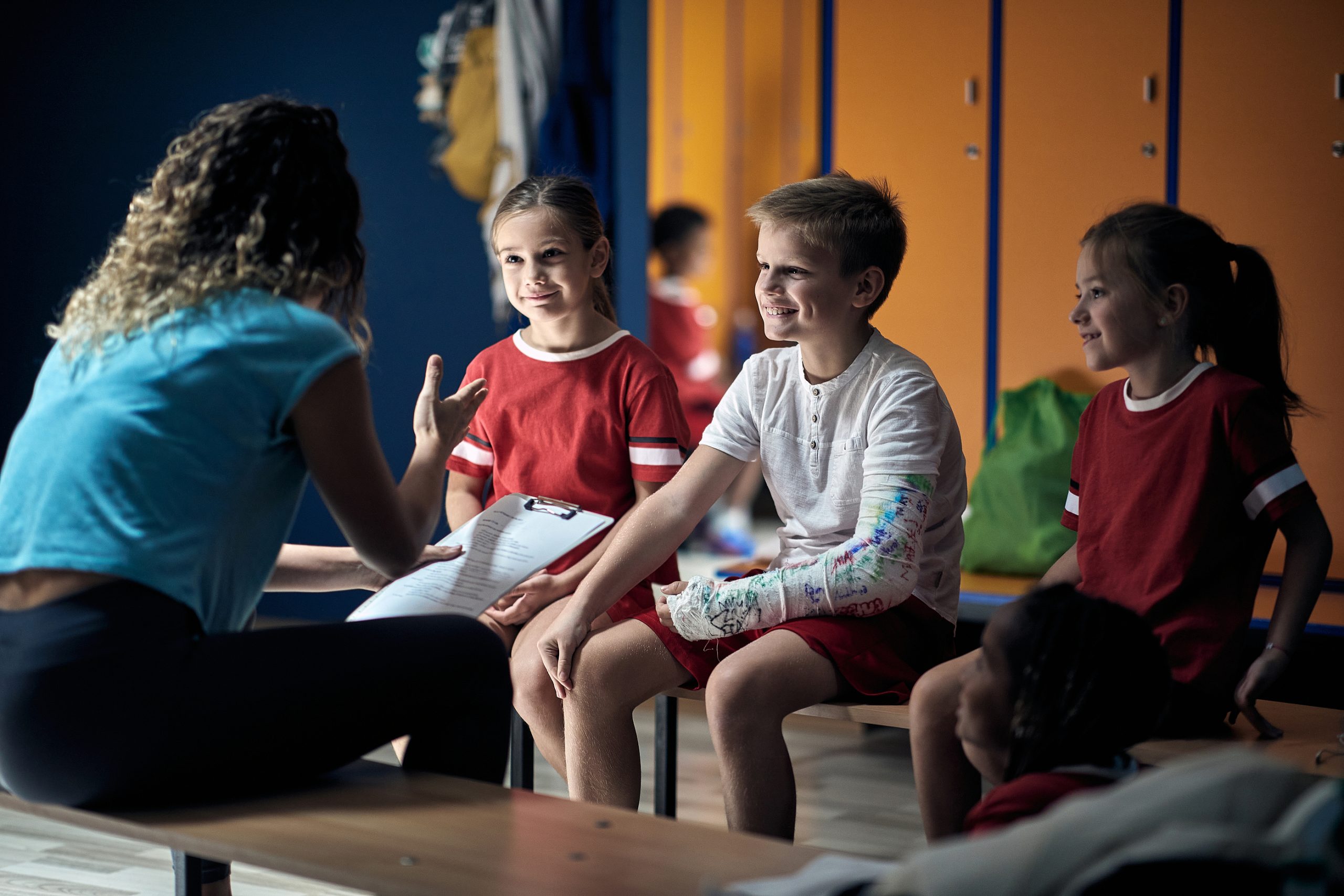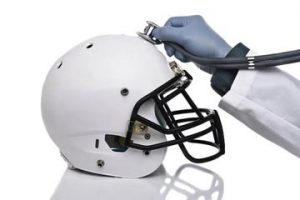
Free Consultation(203) 447-0000

Free Consultation(203) 447-0000

While coping with a serious injury can be difficult at any age, it is often especially difficult for children. In particular, for youth athletes who may have been building toward a goal and who have to watch from the sidelines as their friends and teammates continue to progress, the recovery process can be both physically and mentally challenging.
However, recovery is extremely important, and parents must be able to help their children see that any short-term losses they may experience during the recovery process would be far outweighed by the long-term risks of resuming practice and competition too soon. While this can be easier said than done, there are resources available, and there are doctor-recommended tools and techniques that will often prove effective.
If your child has been diagnosed with a sports-related concussion or any other type of serious sports injury, you will need to be prepared to provide assistance during his or her recovery. If your child is tempted to resume physical activity too soon, you will play an important role in making sure that this does not happen – regardless of your child’s age. It is important to be aware of the emotional challenges that children often experience during the recovery process as well, and you will need to be able to identify when it may be necessary to seek professional help for the psychological effects of your child’s injury.
As a parent, what can you do to help your child as he or she recovers from a serious sports injury? Here are 10 tips to consider:
While most children think they are invincible and don’t know any better than to assume that they will be fine, injuries during childhood can have long-term consequences if they are not given the opportunity to heal. As a result, when your child goes to the doctor for treatment, it is important to try to make sure he or she listens to the doctor and understands the importance of the recovery process. It is important for your child to have a clear understanding of what the recovery process will entail as well, as this can help with contextualization and allow your child to see the light at the end of the tunnel.
Parents should also make sure they have a clear understanding of their children’s treatment needs and what they can expect during the recovery process. While you don’t need to become a medical expert, you do need to be prepared to answer your child’s basic questions and ensure that the doctor’s recommendations are being followed. It will be important for you to know how quickly your child’s injury should be healing as well, as this will allow you to provide reassurance – or inquire with your child’s doctor about potential concerns, if necessary.
For youth athletes who are dedicated to their sport and who feel like they are missing out every single day, it can be easy to feel consumed by a serious injury. As a result, as a parent, it is important to help your child see the bigger picture. Remind your child that his or her current situation is temporary, and instill confidence that taking the time to recover now is the best thing for their athletic aspirations long-term. It can also be helpful to remind children that they enjoy many more aspects of their life than getting in the gym or on the field, and you can encourage your child to focus on these other aspects during the recovery process.
For athletes of all ages, depression after a sports injury is not uncommon. For children, the emotional toll can hit harder than expected, but it can often be difficult for the child – and the parent – to recognize what is going on. With this in mind, parents should familiarize themselves with the symptoms of anxiety and depression in children. If you observe these symptoms, you should not assume they will go away or chalk them up to childhood angst, but instead consider whether it may be necessary for your child to speak with a professional.
For an overview of the signs and symptoms of which parents should be aware, you can review this resource from the U.S. Centers for Disease Control and Prevention (CDC): Anxiety and Depression in Children.
If a child is used to going to practice every day and preparing for games, matches, or tournaments on the weekends, a serious sports injury can disrupt their schedule and leave them with a significant amount of additional free time. In order to prevent your child’s injury from leaving a gaping hole in each and every day – and leaving your child bored, which can also lead to anxiety and depression – it can be extremely helpful to help your child develop a new routine. What new opportunities are available now that your child has more free time? What can you do together to help take your child’s mind off of his or her injury? The more proactive you can be in this regard, the more you will be able to help your child effectively cope with his or her injury.
When facing a prolonged recovery period, it is common for children to only focus on the end result: When can I get back in the gym or on the field? If this is weeks or months away, the recovery period can seem to drag on, and it can feel as though little progress is being made.
To combat this, parents can help their children establish milestones. When does the cast come off? When can your child start physical therapy? When can he or she resume light physical activity? Identifying and celebrating these types of milestones can break up the overall recovery period and help your child avoid simply focusing on one date that may seem impossibly far into the future.
In this same vein, if your child is struggling to cope with the physical and emotional effects of his or her injury, it is important to focus on the positives. While parents should not dismiss their children’s feelings or concerns, they should try to help their children see that there are still many positive aspects of their lives. As suggested above, look for new opportunities for your child as he or she heals, acknowledge and celebrate progress, and talk about what the future has in store once your child is fully recovered.
Unfortunately, in some circumstances, children can feel pressured to return to practice too soon. As a result, it is important for parents to be advocates for their children and to speak on their children’s behalf if a coach or trainer pressures them to get back in the gym or on the field before they are fully healed. Generally speaking, parents should ensure that their children follow their doctors’ advice, and they should not let others encourage ill-advised or risky decisions.
If your child’s recovery is taking longer than expected, or if your child is expected to experience permanent physical or cognitive limitations as a result of his or her injury, consider seeing a different doctor for a second opinion. Not all doctors are equally skilled, and another doctor may be able to offer a quicker or more-effective form of treatment. Even if the second doctor you see simply confirms the original diagnosis and treatment recommendations, this will help your child to see that going through the recovery process is necessary.
Finally, if your child is exhibiting symptoms of anxiety or depression following a serious sports injury, it may be advisable for you to have him or her speak with a child psychologist. Mental health issues need to be taken seriously, and they can be very difficult for children (and adults) to understand and manage on their own. An experienced child psychologist will be able to help your child with the emotional impacts he or she may be experiencing and will be able to offer advice, coping mechanisms, and other practical tools to assist you and your child with managing the emotional impacts of your child’s injury.
 For many parents, finding a way to cover the costs of treatment for a sports-related injury can be a source of significant stress. Even if your family has health insurance coverage, this might not be enough; and, if you need to take time off from work to drive your child to the doctor or assist with his or her recovery, your financial losses can begin to add up quickly.
For many parents, finding a way to cover the costs of treatment for a sports-related injury can be a source of significant stress. Even if your family has health insurance coverage, this might not be enough; and, if you need to take time off from work to drive your child to the doctor or assist with his or her recovery, your financial losses can begin to add up quickly.
In many cases, families will be able to recover financial compensation for their children’s sports-related injuries. Negligence on the sideline, medical negligence and malpractice, and a variety of other issues can all potentially support claims for financial recovery. At Berkowitz Hanna, we help families in Connecticut recover financial compensation for the effects of sports entity negligence and malpractice. If your child has been diagnosed with a serious sports injury, our lawyers will assess your family’s legal rights for free, and we will pursue any and all available claims on your family’s behalf.
If you would like to speak with a lawyer about pursuing financial compensation for your child’s sports injury, we encourage you to get in touch. To schedule a free, no-obligation consultation with one of our injury lawyers, please call directly or request an appointment online today.
Berkowitz Hanna
